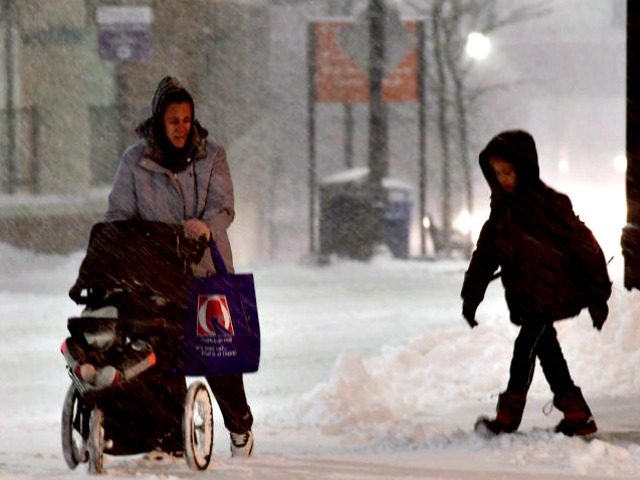The spread of the novel coronavirus in the Northern Hemisphere could subside in the sweltering summer months only to resurface when cooler, dry seasonal weather returns, four independent preliminary studies conducted by research groups in the United States, Australia, and China have predicted.
“We should prepare for annual or sporadic outbreaks every few years,” Stephen Kissler, a bio-mathematician at Harvard University and one of the U.S.-based researchers said, the Wall Street Journal reported on Monday.
According to the Journal, the different researcher groups analyzed how temperature and humidity impact the virus (SARS-CoV2) that causes the disease (COVID-19).
The scientists found a cluster of the most severe outbreaks in areas of cool, dry seasonal weather.
On Monday, the Journal reported:
The four studies—which the research teams themselves posted this month on open-access servers to share the data more quickly—suggest that Covid-19, if unchecked by medical controls, could take its place in a calendar of seasonal epidemics that range from malaria, measles and meningitis to tuberculosis and whooping cough.
With more data, the effort to link the disease to seasonal weather patterns might eventually help public-health authorities anticipate future outbreaks and marshal timely countermeasures, the U.S.-based scientists said.
The Journal acknowledged that the studies are preliminary, given that they rely on data obtained during the first six weeks or so of the accelerating coronavirus outbreak, now considered a pandemic by the World Health Organization. No one has peer-reviewed the studies, the newspaper also said, adding:
Public-health experts at the World Health Organization and the U.S. Centers for Disease Control and Prevention, who weren’t involved in the studies, say it is too soon to draw conclusions about seasonal behavior of the new coronavirus. While many coronaviruses such as those that cause the common cold are seasonal, medical experts say there isn’t enough evidence to conclude that Covid-19 will go away this summer.
The outbreak has surfaced in areas with generally high and humid temperatures, including Florida and Latin America. Nevertheless, there have been more cases in temperate regions.
While it remains unclear how the different seasons will impact the novel coronavirus, some researchers believe that hot, humid weather may not favor the survival and transmission of the disease.
Researchers at Beihang University and Tsinghua University in Beijing in China, the birthplace of the novel coronavirus, found that the disease was more contagious in areas with low temperatures and relative humidity that in warmer and more humid regions.
The study funded by the National Natural Science Foundation of China reportedly said:
High temperature and high relative humidity significantly reduce the transmission of Covid-19. In July, the arrival of summer and rainy season in the Northern Hemisphere can effectively reduce transmission of the Covid-19; however, risks remain in some countries in the Southern Hemisphere [such as] Australia and South Africa.
Health analysts at Ausvet, an Australia-based private epidemiology consulting company, reached similar conclusions.

COMMENTS
Please let us know if you're having issues with commenting.